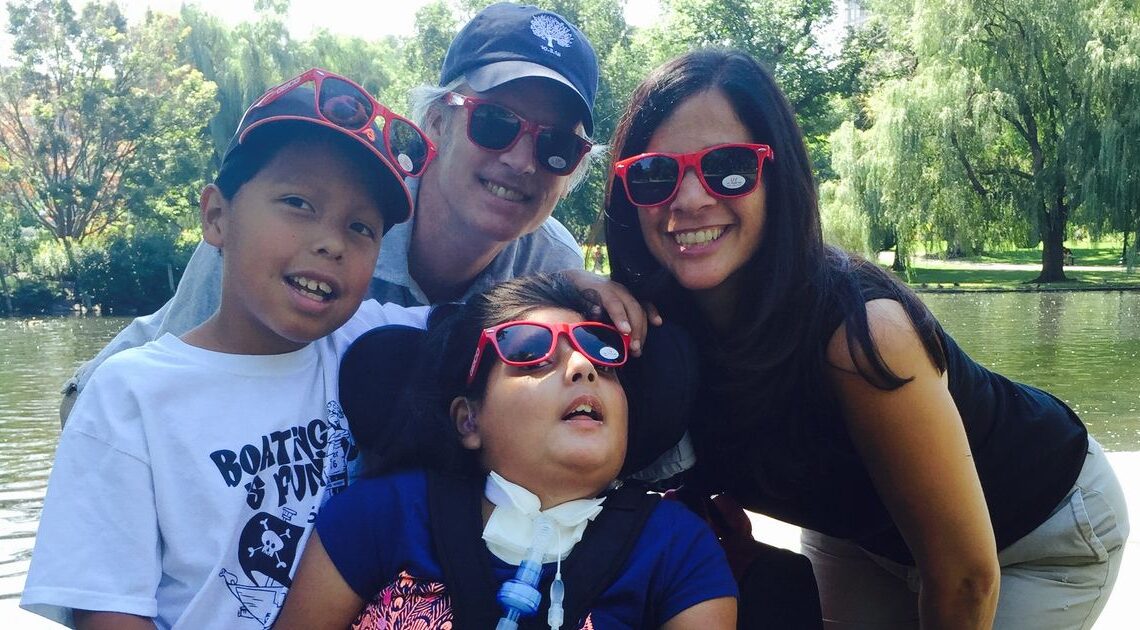The other day a colleague sent me a text to cancel a meeting. “I’ve been so sick for the past several days,” she began. “I’ll need to reschedule.”
I wasn’t sure whether she meant she was physically ill or sick over the election. The two options seemed equally plausible.
Today, many of us — about half of us, actually — across the country feel somewhat sick. Because if the personal is political, the inverse is true, too.
We don’t know what the future holds; it’s not clear how much will change or how quickly; and we feel like the dreams we had may turn out to be no more than fantasies.
I’ve been here before in more personal and heart-wrenching circumstances, but the feelings are all too familiar.
Nineteen years ago, I sat between my husband and my father in a small, antiseptic room at Boston Children’s Hospital and received the news that would change my life forever.
“Your daughter’s genetic test results indicate a diagnosis of MERRF syndrome,” the doctor we’d never met before told us. He went on to explain that MERRF, or myoclonic epilepsy with ragged red fibers, is a rare form of mitochondrial disease, that it’s degenerative and that there’s no cure.
All of this seemed preposterous. Our sparkly, feisty, sweet 5-year-old daughter Dalia had an insidious, incurable illness? We’d suspected something was going on, hence the genetic test in the first place. But this? Unimaginable.
I mean that quite literally. We were not able, or even willing, to imagine what it might mean to watch our daughter grow weaker over time, to bear witness to the loss of the very things she was just learning to do.
For the next 12 years, until she died at 17, we didn’t need to imagine.
Ever so slowly, but also in the blink of an eye, Dalia lost her ability to walk, talk, eat and breathe without a ventilator. She needed “eyes-on care” 24/7, meaning myself, my husband or a nurse trained specifically in her care had to be with her at all times.
I am not now the same naive person I was that day in the doctor’s office. Now I understand what it means to live every day with fear, uncertainty and despair. I know how overwhelming the darkness can feel. But I also know that even when we feel utterly out of control and eviscerated over the reality unfolding in front of us, we can act in ways that give us some agency over the swirling chaos.
What did I learn from living on the precipice?
Microdosing hope, joy and action is a powerful antidote.
When…
Click Here to Read the Full Original Article at Women…

